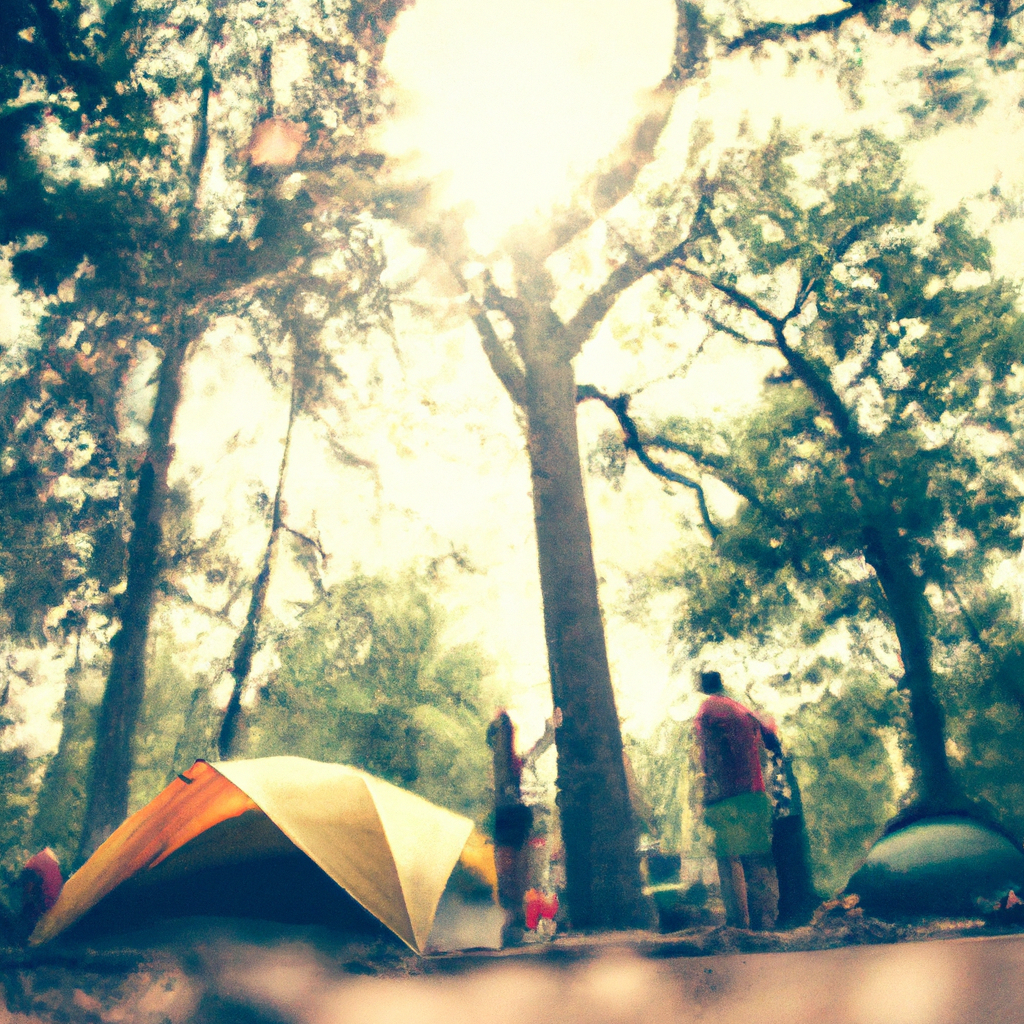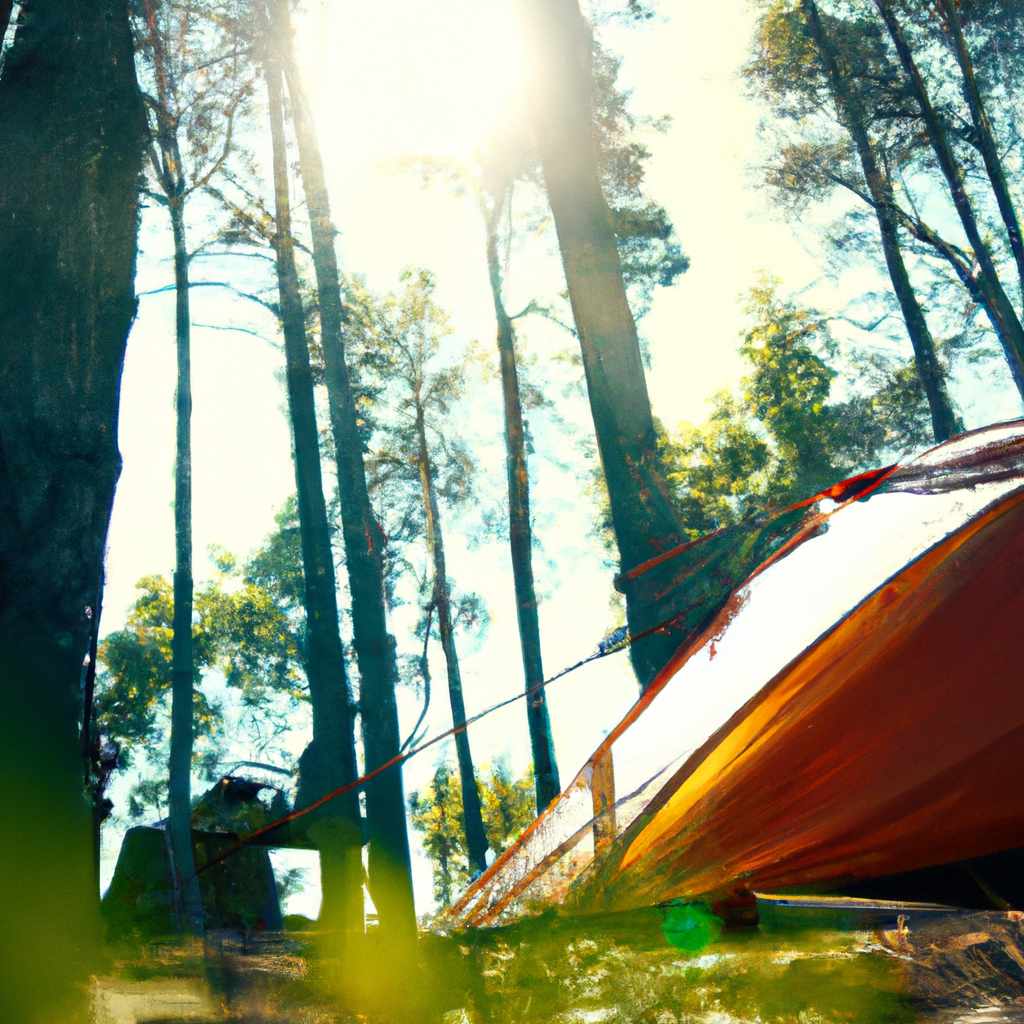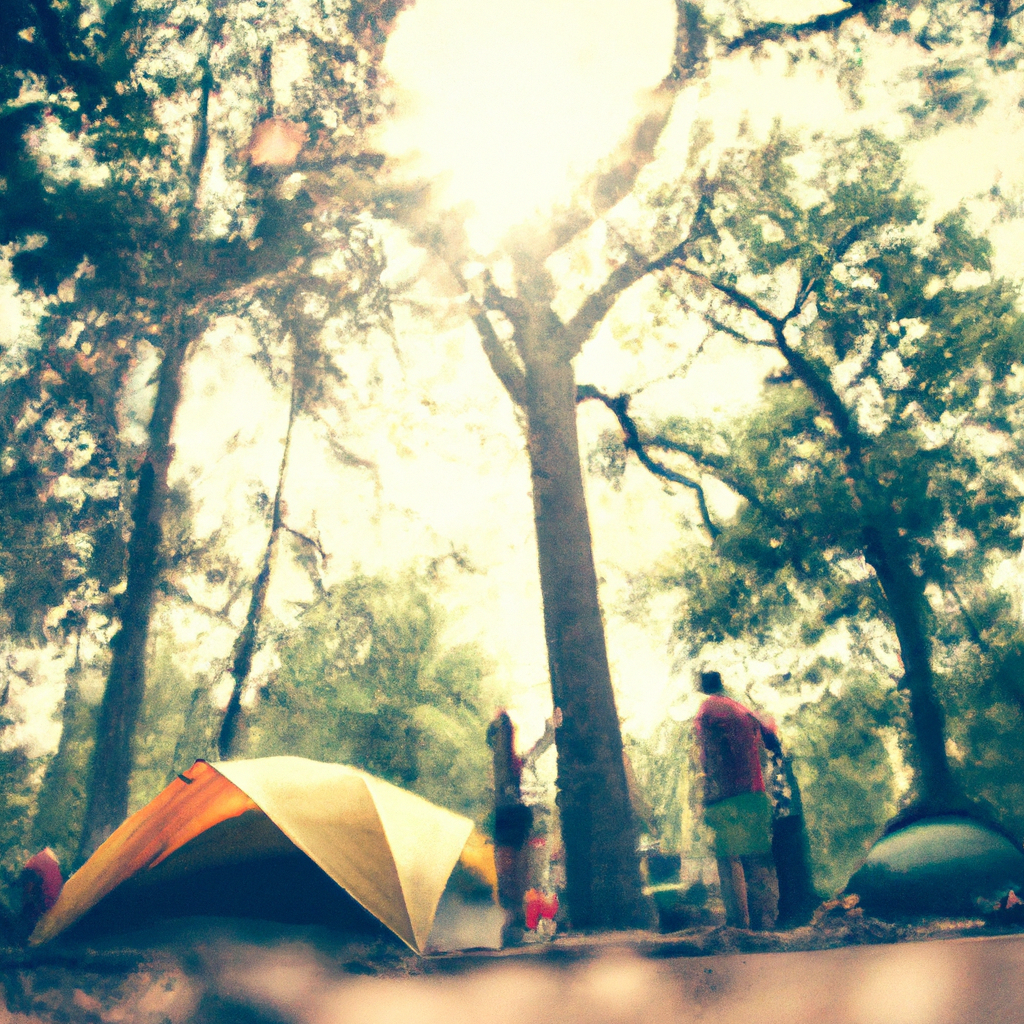Heading out on a camping trip near a serene lake or a rushing river can be an exciting adventure, offering you the opportunity to connect with nature and unwind from the chaos of daily life. However, it’s important to remember that camping near water bodies also comes with certain precautions that need to be taken in order to ensure your safety and the preservation of the environment. From staying hydrated to avoiding potential hazards, this article will guide you through the essential precautions you should keep in mind before you set up your camp by the water.
Selecting a Campsite
When camping near water bodies like lakes and rivers, it is important to choose the right campsite. Start by checking if there are designated camping areas in the vicinity. These areas are usually properly maintained and have amenities like fire pits and restroom facilities. Camping in designated areas ensures that you adhere to any specific regulations or restrictions that may be in place.
Another factor to consider when selecting a campsite near water is to choose higher ground. This precaution helps to avoid potential flooding or water accumulation during heavy rainfall. Camping on higher ground also provides a better view of the surroundings and may offer more privacy.
Additionally, the distance from the water should be taken into account. While it may be tempting to camp right by the water’s edge, it is important to stay a safe distance away. This not only helps to prevent accidents or injuries, but also avoids potential damage to the surrounding ecosystem. Stay aware of any water level changes and ensure your campsite is far enough from the water’s edge to remain safe.
Managing Water Sources
Water is a crucial resource when camping near water bodies, so it is essential to manage it properly. Always ensure water cleanliness before drinking or using it for cooking. Even when camping near seemingly clean water sources, it is important to purify the water to eliminate any potential bacteria or parasites. This can be done using water purification tablets, filters, or by boiling the water for at least a minute.
When accessing water sources, it is crucial to avoid contaminating them. This means avoiding activities like washing dishes or clothes directly in the water. Instead, use a basin or separate container to do so, and dispose of any soapy water away from the water source. By practicing proper water management techniques, you can prevent pollution and ensure the availability of clean water throughout your camping trip.

Weather Considerations
Checking the local weather forecast is essential when camping near water bodies. Weather conditions in such areas can change rapidly, and being aware of any potential storms or heavy rainfall can help you stay prepared. Take note of any weather advisories or warnings and plan your activities accordingly.
One specific risk to be aware of when camping near water bodies is the potential for flash floods. These can occur when heavy rainfall causes a sudden rise in water levels, posing a serious threat to anyone in its path. To avoid this, it is important to camp away from dry creek beds or low-lying areas that could be susceptible to flash floods. Always prioritize your safety and move to higher ground if necessary.
Another precaution is to avoid camping near steep slopes. Heavy rain can cause soil erosion, leading to landslides or rockfalls. By selecting a camping area that is not near steep slopes, you can reduce the risk of being affected by such natural hazards.
Fire Safety
When camping near water bodies, it is essential to follow campfire regulations. These regulations are often in place to prevent accidental fires and protect the environment. Before starting a campfire, always check for any fire restrictions or burn bans that may be in effect in the area. If campfires are allowed, use designated fire pits whenever possible and keep the fire contained.
Keeping a safe distance from the water is another important aspect of fire safety. Campfires should be positioned a reasonable distance away from the water’s edge to prevent any unintentional spread of the fire. Avoid setting up your campsite too close to the water, as sparks from the fire could pose a risk of starting a wildfire or endangering nearby vegetation.
Once you are ready to extinguish a campfire, make sure to do so completely. Douse the fire with water, carefully stirring the embers and ashes to ensure they are fully extinguished. It is crucial to leave no traces of smoldering fire or hot coals, as these can reignite and cause unintended harm to the environment or wildlife.

Avoiding Wildlife Encounters
Camping near water bodies often means being in close proximity to various wildlife species, so it is important to take precautions to avoid any unwanted encounters. One of the key steps is to store your food properly. Keep all food tightly sealed and stored in bear-proof containers or suspended from a branch high above the ground. This helps to prevent attracting animals to your campsite.
Dispose of waste correctly, as leftover food scraps or improperly discarded trash can attract wildlife as well. Place any garbage in sealed containers and pack it out when leaving the campsite. Never leave any trash behind, as it not only poses a risk to animals but also damages the natural beauty of the surrounding environment.
Maintaining a safe distance from wild animals is crucial for both your safety and the well-being of the animals. While it may be tempting to get closer or interact with them, remember that they are wild creatures and should be observed from a distance. Respect their space and do not attempt to feed or touch them.
Bathing and Swimming
One of the enjoyable aspects of camping near water bodies is the opportunity to engage in activities like bathing and swimming. However, it is important to take precautions to ensure your safety.
Before getting into the water, be cautious of water currents. Even seemingly calm water can have strong undercurrents or hidden hazards. If you are unsure about the safety of the water, it is best to abstain from swimming or bathing.
Check the water depth and bed conditions before entering. Look out for submerged rocks, logs, or other potential hazards that may cause injury. If you are planning to dive, make sure the water is deep enough and the area is clear of any obstacles. Sharp changes in water depth can lead to accidents, so always exercise caution.
Lastly, follow swimming safety guidelines. Swim with a buddy, especially in unfamiliar waters, and avoid alcohol consumption before swimming. Pay attention to any posted signs or warnings about water quality or dangerous conditions, and never swim alone in remote areas.
Personal Safety
Maintaining personal safety while camping near water bodies is essential to ensure a pleasant and incident-free trip. One simple precaution is to wear appropriate footwear. Closed-toe shoes or sandals with sturdy soles are recommended for outdoor activities, as they provide protection and better traction on uneven or slippery surfaces.
Be cautious of slippery surfaces, especially when near the water. Wet rocks or moss-covered areas can be extremely slippery, increasing the risk of falls or injuries. Take your time when navigating such areas and use caution to prevent any accidents.
Lastly, avoid diving in unknown waters. Shallow or rocky areas can cause serious injuries if you dive into them. Always assess the depth of the water and look out for any potential hazards before considering diving. It is better to be safe than sorry and avoid any unnecessary risks.
Protecting and Preserving the Environment
Camping near water bodies offers the opportunity to enjoy and appreciate the beauty of nature. To ensure this beauty is preserved for future campers, it is essential to take steps to protect and minimize our impact on the environment.
Pack out all trash and leave no trace of your visit. This means taking all garbage with you and disposing of it properly in designated waste receptacles. Avoid leaving behind any non-biodegradable items, as they can take years to decompose and harm the surrounding ecosystem.
Respect wildlife habitats by not disturbing or approaching animals and their nesting or breeding areas. Maintain a quiet and peaceful atmosphere, as excessive noise can disrupt their natural behavior. Respect designated wildlife protection areas, which may have specific guidelines to follow for the safety and well-being of the animals.
Minimize your impact on vegetation by sticking to designated trails and avoiding trampling on plants or trees. Avoid picking flowers or damaging vegetation unnecessarily. By being mindful of the environment, we can ensure the beauty of these water body areas is preserved for future generations to enjoy.
Emergency Preparedness
Preparing for emergencies is crucial, especially when camping in remote areas near water bodies. One important step is to carry a well-stocked first aid kit. This kit should include essential items such as bandages, antiseptic creams, pain relievers, tweezers, and any necessary personal medications. Familiarize yourself with how to use the items in the kit before your camping trip.
Having emergency contact information readily available is also important. Keep a list of emergency phone numbers, including local emergency services and park rangers, in a waterproof container or your mobile phone. Being able to quickly access help in case of an emergency can make a significant difference in the outcome of the situation.
Basic knowledge of rescue techniques can be beneficial in emergencies. Familiarize yourself with simple techniques like CPR and basic water rescue, as they may be crucial in saving lives. Consider taking a basic wilderness first aid or safety course before embarking on your camping adventure.
Respecting Local Regulations
Respecting local camping rules and regulations is essential when camping near water bodies. These rules are put in place to protect the environment, ensure the safety of campers, and maintain a harmonious experience for everyone. Familiarize yourself with any restrictions or guidelines specific to the campsite or park you are visiting.
In addition to camping regulations, check for fishing and boating regulations if you plan to engage in those activities. Many water bodies have specific rules regarding fishing licenses, catch limits, and restricted areas. Make sure you are aware of these regulations and comply with them to avoid any legal consequences.
Respect quiet hours and wildlife protection areas. Quiet hours are typically designated times during which noise should be minimized to allow everyone to enjoy a peaceful camping experience. Wildlife protection areas may have specific guidelines to follow to protect sensitive habitats or endangered species. Adhering to these guidelines ensures the well-being of the wildlife and the preservation of their habitats.
By following these precautions and guidelines, you can have a safe and enjoyable camping experience near water bodies like lakes and rivers. Remember to always prioritize safety, respect the environment, and be prepared for any unforeseen circumstances. Happy camping!

